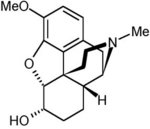EDITOR--Robertson's critique of prison medical care of drug misusers would be valid if his fundamental proposition that drug misuse is a disease was held by all.[1] If this were the case then clearly medical practitioners would have a duty both to prevent the disease and to mitigate its sequelae.
Drug misuse is not a disease in the sense of an unfortunate assault on one's health. Rather, it stems from an individual's autonomy to choose whether or not to misuse drugs. Any medical input at this causal stage of choice could be viewed as beneficent paternalism and, from an ethical point of view, no more than that.
Drug misusers in custody do not always wish to seek medical help, so Robertson's inference that drug problems in prisons are "unacknowledged" itself needs rehabilitation. Even when prisoners are discharged, community practitioners rarely seek custodial medical information, which is always available on request. As I was drafting this letter, however, a medical practitioner did phone up regarding the treatment of a recently discharged drug misuser. He wanted to know if his patient had been receiving dihydrocodeine, zopiclone, and diazepam. The patient's record in fact showed that he had been taking tar based shampoo, and an antibiotic and an analgesic for a dental problem. Caution is needed in dealing with drug misusers; I wonder how this vignette supports or disproves Robertson's thesis.
Discharged patients rarely consent to their community practitioners having access to their custodial medical history--save where litigation is an issue. The prevalence of mental disorders in prisoners is well documented, so practitioners must explore fully the possibility of mental illness before opting for the more nebulous clinical option of post-traumatic stress syndrome.
Perhaps the Alcoholics Anonymous method of dealing with alcohol misuse should be applied, for here the autonomy of the patient to change his or her lifestyle is paramount. Using a medical model upholds the myth that addicts are the passive agent in a disease process over which they have no control.
JM Hall Senior medical officer
HM Prison, Winson Green, Birmingham B18 4AS
[1] Robertson R. Unacceptable practices: Prison to the community in one, totally unprepared, step. BMJ 1998; 317:757. (12 September.)
COPYRIGHT 1999 British Medical Association
COPYRIGHT 2000 Gale Group



